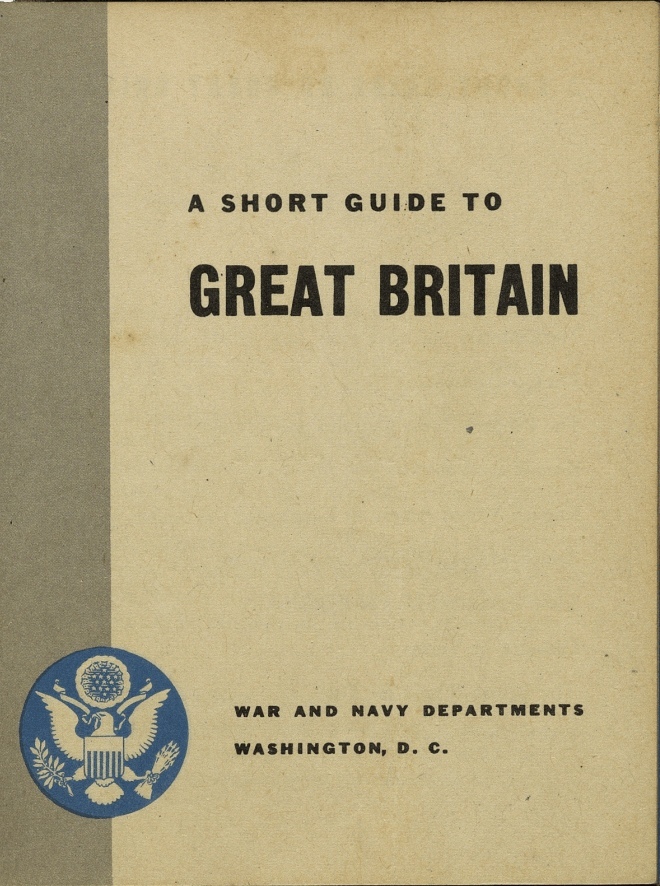Beer, football and public transport: a GI’s guide to Great Britain

In my time as an intern at AM, I’ve had the pleasure of stumbling across some fantastic sources. One that stood out to me whilst working on the upcoming World War Two: Oral Histories and Personal Accounts project was a booklet produced by the US War and Navy Departments in Washington D.C., titled ‘A Short Guide to Great Britain’. During World War Two more than 60,000 American soldiers were stationed in Britain and this handy little guide, published in 1942, contained some wonderful little pieces of advice. I wonder how much of this would still be useful to American’s travelling to Britain today? Let’s have a look…
"The British are often more reserved in conduct than we."
It’s true, us Brits do have a longstanding reputation of being a nation of polite, reserved people. The above statement is followed by the warning that if you’re sat on a train or bus and no one tries to strike up conversation, it is not that they are being unfriendly, they just don’t want to be intrusive. Since I can’t remember the last time I struck up a conversation with anyone on public transport, I’d say this piece of advice still stands.
"You will find that English crowds at football or cricket matches are more orderly and polite to the players than American crowds."
Having just talked about how polite and reserved the British are, this next quote had me laughing out loud because that definitely goes out the window once the football is on. I don’t know about anyone else, but the crowds I encountered whilst watching England play in the World Cup this summer were far from orderly and polite.
"The British don’t know how to make a good cup of coffee. You don’t know how to make a good cup of tea. It’s an even swap."
This one had me nodding my head in agreement. After the Boston Tea Party of 1773 it was seen as unpatriotic to drink tea, increasing the popularity of coffee. Nowadays coffee is still a lot more popular in America, though iced tea is widely consumed. Since I’m one of those people who never goes on holiday without packing teabags, maybe we could advise Americans to bring their own coffee over here?
"All your arguments that the American decimal system is better won’t convince them."
This quote came from a section about getting used to the British monetary system of pounds, shillings and pence. At the back of the booklet there was also a table converting British currency into the approximate American value. Whilst this was probably a lifesaver for Americans in Britain in 1942, since Britain adopted the decimal system in 1971 and Americans have been using it since the 1790s, a guide to British currency is probably no longer necessary.
"The British are beer-drinkers – and can hold it."
This is definitely still something a British man or woman would say to a visiting American. I guess some things never change!
World War Two: Oral Histories and Personal Accounts digitised personal archival collections and oral histories from The National WWII Museum in New Orleans. See the press release here. For more information please email us at info@amdigital.co.uk
Recent posts

The blog highlights American Committee on Africa, module II's rich documentation of anti-apartheid activism, focusing on the National Peace Accord, global solidarity, and student-led divestment campaigns. It explores the pivotal role of universities, protests, and public education in pressuring institutions to divest from apartheid, shaping global attitudes toward social justice and reform.

This blog examines how primary sources can be used to trace the impact of young voices on society, particularly during pivotal voting reforms in the UK and the US. Explore materials that reveal insights into youth activism, intergenerational gaps, and societal perceptions, highlighting their interdisciplinary value for studying youth culture, activism, and girlhood across history.





